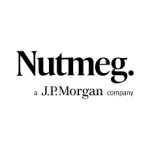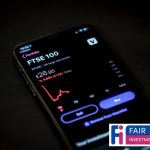Where will the FTSE 100 go from here?
Despite the FTSE 100 recently finishing at its highest level since the turn of the century, it still remains a difficult time for investors when deciding what might happen next. Will it be closer to 6,000 points in 12 months time, or perhaps 7,000?
We take a look at what has been one of the most unusual market runs in history in order to better understand what might happen in the coming years as well as consider a selection of growth investments that could match your view.
A very strange bull market
When there is a strong and relatively continuous rise in the stock market it is usually referred to as a bull market. For the 12 months to the end of May, the most widely used indicator of the UK stock market, the FTSE 100 Index, had risen by a sizeable 1,262 points, equivalent to 23.7% growth.
Despite this growth being significant and of course well received by those in a position to take advantage, it does however feel like the strangest bull market in memory. This is because although stock markets around the world have risen close to or surpassed their record highs, the overriding feeling amongst many investors appears to be not excitement but rather awaiting the arrival of the next setback.
A bull market usually occurs in association with increasing investor confidence and increased investing in anticipation of future price increases, but as an investor you would be forgiven for watching the continued stock market gains in disbelief since despite last week’s setbacks, we still remain very much in an equity bull market.
Stock market v economy
This therefore seems to be a reluctant bull market, with no one getting too over excited nor making predictions about a new era for stock markets as so often happens during such a strong market run. There is almost a suspicion that this can’t really be happening or will come to an end with a bang – I’m sure most of us have already asked ourselves, ‘How can the market be moving so high when the economy is in such dire straits?’
However, one important point to make is that the stock market and the economy are actually very lowly correlated – so perhaps it is this misinterpretation of what we think should be happening which is fuelling investor pessimism…
FTSE takes its own course
The UK economy in particular has little bearing on its major market index with as much as 80% of FTSE 100 revenues currently coming from overseas. You therefore learn very little about the direction of the UK market from studying this aspect of its economy. The main point to remember is that markets are forward looking. They are always anticipating what might happen in the future and prices adjust accordingly.
On the other hand, economic data is always backward looking. For example, the Gross Domestic Product (GDP) numbers are released quarterly, two weeks after the end of the quarter and with only half the data for the last month. This can then be substantially revised afterwards. As a result, by the time the real data is known it may be six months or more after the event. Stock markets will have moved on by then.
Lessons to learn?
The Index is currently around the 6,400 mark and, despite having suffered several blips last week is still up considerably over the past year. Indeed, for several years now ultra-low interest rates and expanding central bank balance sheets have been nudging investors toward equities.
In this type of environment, any potential change in central bank conditions could have the potential to create a different investment environment and the last week or so has shown that the mere suggestion this could be withdrawn is enough to prompt falls in stock markets.
Which way from here?
Certainly for investors looking to make new investments or transfer existing investments, having the FTSE remain at historically high levels raises the question whether now is the right time to invest or not. However, despite the recent market corrections investors would appear reluctant to sell equities for fear they might miss out on any further upside. So what else might we be able to read into the current market run when deciding which course to take? Well, the reality is, perhaps, very little.
Arguably as we get closer to some modest changes in the US monetary policy, investors should perhaps expect to see increased levels of volatility and should therefore prepare themselves for more bumps along the way. Other than that, the question to ask yourself is which way the market might go from here? Only then can you consider investments which reflect this view.
FTSE remains relatively flat
If you think the FTSE will remain relatively flat in a year’s time then the Enhanced Kick-Out Plan from Investec may be of interest. This investment offers the potential to mature early and return 8.5% for each year the plan has been in place (not compounded). The plan has a 5 year investment term but will mature early if the FTSE 100 finishes higher than its starting value at the end of each year, from year one onwards. This investment could therefore provide competitive returns even if the FTSE has only gone up by as little as a single point.
If you would prefer to hedge against a slightly falling market then the Defensive Kick Out Plan from Morgan Stanley will return 8.25%* for each year invested (not compounded) provided the FTSE has not fallen by more than 5% from its starting value at the end of each year, from year two onwards.
Finally, the Investec Defined Returns Plan offers the potential to mature at the end of either year 3 or year 5. The potential return is 40.5%* after three years or 67.5%* at the end of year 5 provided the FTSE finishes higher than its starting value at either point (subject to averaging). Therefore, if the market has only risen slightly, this investment could provide an attractive upside.
Blue chip companies lead the way
One further unusual element to this current bull market is that it has been led by the traditional ‘defensive’ stocks. These big blue chip, dividend paying shares are often those that underperform in a rising market but do well in more difficult times. Conversely, so-called ‘cyclical’ stocks which are more linked to the global economy, tend to outperform in a rising market – this time they have lagged.
If the economy does pick up you could reasonably expect the cyclical stocks to catch up with the more defensive shares. But whether this happens or not, if you take a medium term view and consider that the larger blue chip companies will continue to lead the way, then the UK Giants Selector Plan from Morgan Stanley might be worth a closer look.
This investment offers a return linked to the best performing 11 shares from the 20 largest FTSE 100 companies. Commenting on this investment, head of savings and investments at Fair Investment Company Limited, Oliver Roylance-Smith, said: “The potential for high returns is one of the main attractions of investing in the stock market… but the opportunity to access the growth potential of only the best-performing largest UK companies might be even more appealing for those investors who consider these companies will continue to lead the way out of this difficult economic environment”.
Some protection from a falling market
In addition to the potential returns on offer, the other element of your final payment is the return of your original investment. Within all of the above investments this is dependent on the performance of the FTSE 100 over the investment term with some protection from a falling market also built into each plan – known as conditional capital protection.
For all of the above investments except the UK Giants Selector Plan, this means that your capital is at risk if the FTSE falls by more than 50% during the investment term and also finishes below its starting level. If this occurs, your initial investment will be reduced by 1% for each 1% fall. The UK Giants Plan includes the same 50% barrier but this is measured on the last day of the investment only. As such all of these investments are not capital protected and therefore should only be considered if you are prepared to lose some or all of your initial investment.
Research all of your options
Whatever your thoughts on the future of the stock market, it is important to make sure you research all of your options. At Fair Investment Company we are constantly reviewing the market and depending on your view on what could happen to the FTSE in the coming years, there should be something to match your views.
Remember that all of these investments are eligible for ISAs (up to the maximum 2013/14 ISA allowance of £11,520) as well as non-ISA investments. They also accept transfers from Stocks & Shares ISAs as well as Cash ISAs but you should be aware that once Cash ISAs are transferred to a Stocks & Shares ISA, they cannot be transferred back to a Cash ISA. This information is based on current law and practice which may change at any time.
The past performance of the FTSE 100 Index and each share within the Index is not a guide to their future performance.
Compare kick out investments »
* gross of tax and any applicable charges
No news, feature article or comment should be seen as a personal recommendation to invest. Prior to making any decision to invest, you should ensure that you are familiar with the risks associated with a particular investment. If you are at all unsure of the suitability of a particular investment, both in respect of its objectives and its risk profile, you should seek independent financial advice. Tax treatment depends on your individual circumstances and may change.
The investments referred to in this article are structured investment plans that are not capital protected and are not covered by the Financial Services Compensation Scheme (FSCS) for default alone. There is a risk of losing some or all of your initial investment. There is a risk that the company backing the plan or any company associated with the plan may be unable to repay your initial investment and any returns stated. In addition, you may not get back the full amount of your initial investment if the plan is not held for the full term. The past performance of the FTSE 100 Index and each share within the Index is not a guide to their future performance.
Tags





